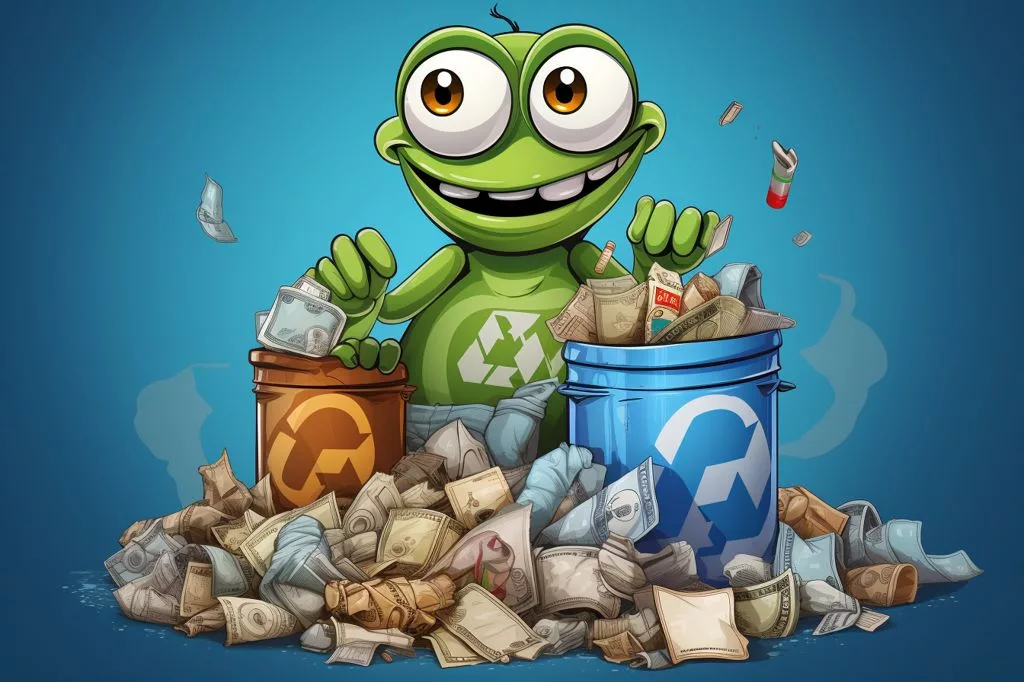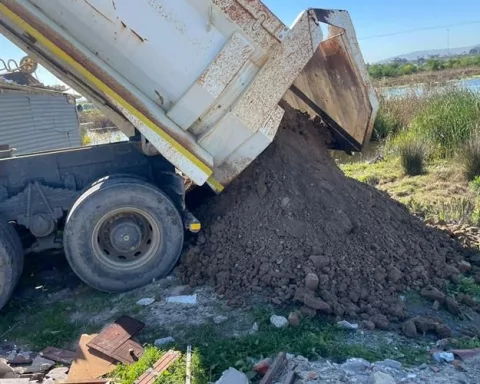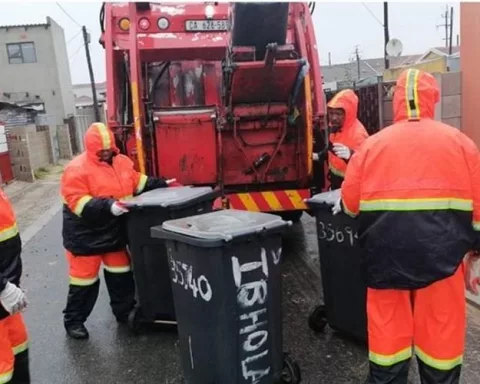Bingo, the anti-litter mascot of Cape Town, visited Delft Library to teach children about the importance of waste management. The visit was part of the #SpringCleanCT campaign, which aims to combat littering and illegal dumping by promoting community clean-ups and encouraging reporting of offenders. The campaign advocates the use of social media to share images and stories of communities participating in the initiative. Bingo’s journey through Cape Town is an inventive and creative way to address environmental concerns and inspire the younger generation to create a more sustainable and cleaner city.
Bingo’s Exciting Visit to Delft Library
Bingo, the popular anti-litter mascot of Cape Town, made a special appearance at Delft Library on October 6 as part of the library’s holiday programme. Joined by Alderman Grant Twigg, Mayoral Committee Member for Urban Waste Management, and the City’s Public Education and Awareness Team, Bingo conveyed an essential message to the Delft children: the importance of proper waste management.
The captivating visit included a day brimming with educational activities that emphasized the value of recycling, as well as the hazards of littering and illegal dumping. Bingo and the team, dedicated to the #SpringCleanCT campaign, aim to raise awareness of these vital environmental issues and stress the significance of a united effort to keep Cape Town clean.
Alderman Twigg expressed his delight in witnessing the children’s eagerness to adopt the idea of recycling and recognize the importance of upholding a clean city. He noted that even at their tender age, these children displayed a natural understanding of waste reduction and litter prevention. Furthermore, the Alderman emphasized that many residents appeared to have lost sight of these values, and through such initiatives, their comprehension could be reignited.
The #SpringCleanCT Campaign’s Objectives
The primary purpose of the #SpringCleanCT campaign is to involve citizens in combating littering and illegal dumping by promoting community clean-ups and encouraging the reporting of offenders. To support this mission, the city provides cash rewards as motivation for individuals who supply information leading to a conviction. Cape Town residents can report illegal dumping by dialing the City’s 24-hour toll-free number (0800 110077) and may qualify for a reward if their information results in an arrest.
Additionally, the campaign advocates the use of social media to share images and stories of communities participating in the #SpringCleanCT initiative. Residents can also inform the City of any dumping sites needing clearance by calling 0860 103 089.
Bingo’s visit to Delft Library was just one stop in a series of appearances by the mascot and the Public Education and Awareness Team. Their mission is to disseminate the message of waste management and responsible recycling practices across Cape Town. These events offer a unique opportunity for both children and adults to participate in interactive learning experiences, fostering a sense of environmental responsibility.
The Impact of Bingo and the #SpringCleanCT Campaign
As Cape Town grapples with the ongoing issue of litter and waste, the #SpringCleanCT campaign’s contribution to educating and inspiring the younger generation is crucial. By instilling the principles of recycling and waste management in children, the hope is that these values will pave the way for a cleaner, more sustainable city in the future.
Bingo’s journey through Cape Town is a reminder of the inventive and creative methods that can be employed to address environmental concerns. By drawing from historical and cultural movements, initiatives like these can resonate with a wide audience and ignite significant discussions about the environment. The #SpringCleanCT campaign, through its accessible, inventive, and engaging experiences, not only shapes the minds of Cape Town’s youth but also contributes to a collective effort aimed at creating a more sustainable and cleaner city.
In summary, Bingo and the Public Education and Awareness Team have triumphed in capturing the imaginations of Cape Town’s young residents, instilling in them a zeal for preserving their city’s cleanliness and beauty. By incorporating a mix of engaging storytelling and informative activities, they have demonstrated the power of community participation and cooperation in addressing littering and illegal dumping, paving the way for a brighter and more positive environment for future generations.
1. Who is Bingo?
Bingo is the anti-litter mascot of Cape Town.
2. What was Bingo’s recent visit to Delft Library about?
Bingo’s visit to Delft Library was part of the #SpringCleanCT campaign, which aims to combat littering and illegal dumping by promoting community clean-ups and encouraging reporting of offenders. Bingo taught children about the importance of waste management through educational activities that emphasized the value of recycling, as well as the hazards of littering and illegal dumping.
3. What is the #SpringCleanCT campaign?
The #SpringCleanCT campaign is an initiative by the City of Cape Town to involve citizens in combating littering and illegal dumping by promoting community clean-ups and encouraging the reporting of offenders. It also offers cash rewards as motivation for individuals who supply information leading to a conviction.
4. How can Cape Town residents report illegal dumping?
Cape Town residents can report illegal dumping by dialing the City’s 24-hour toll-free number (0800 110077) and may qualify for a reward if their information results in an arrest. They can also inform the City of any dumping sites needing clearance by calling 0860 103 089.
5. What is the objective of the #SpringCleanCT campaign?
The primary objective of the #SpringCleanCT campaign is to combat littering and illegal dumping by involving citizens in community clean-ups and encouraging the reporting of offenders.
6. What is the impact of Bingo and the #SpringCleanCT campaign?
Bingo and the #SpringCleanCT campaign contribute to educating and inspiring the younger generation about recycling and waste management. By instilling these principles in children, the hope is that these values will pave the way for a cleaner, more sustainable city in the future.
7. How can initiatives like Bingo and the #SpringCleanCT campaign address environmental concerns?
Initiatives like Bingo and the #SpringCleanCT campaign can employ inventive and creative methods to address environmental concerns. By drawing from historical and cultural movements, they can resonate with a wide audience and ignite significant discussions about the environment.
8. What is the significance of community participation and cooperation in addressing littering and illegal dumping?
Community participation and cooperation are crucial in addressing littering and illegal dumping. The #SpringCleanCT campaign demonstrates the power of community participation and cooperation in combating these issues, paving the way for a brighter and more positive environment for future generations.












